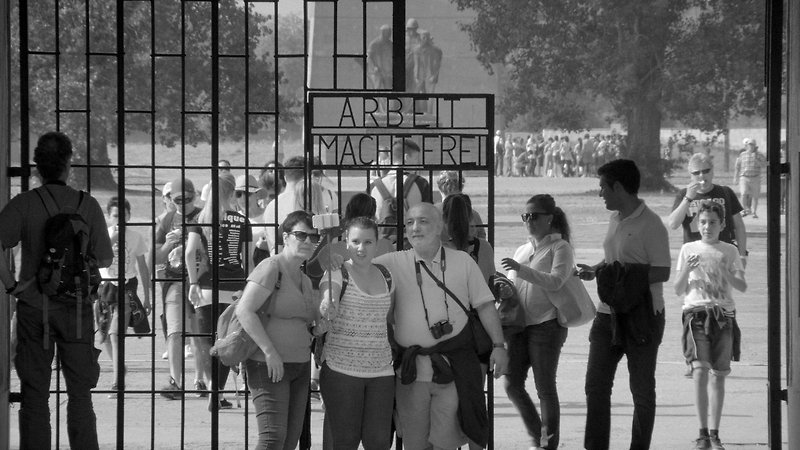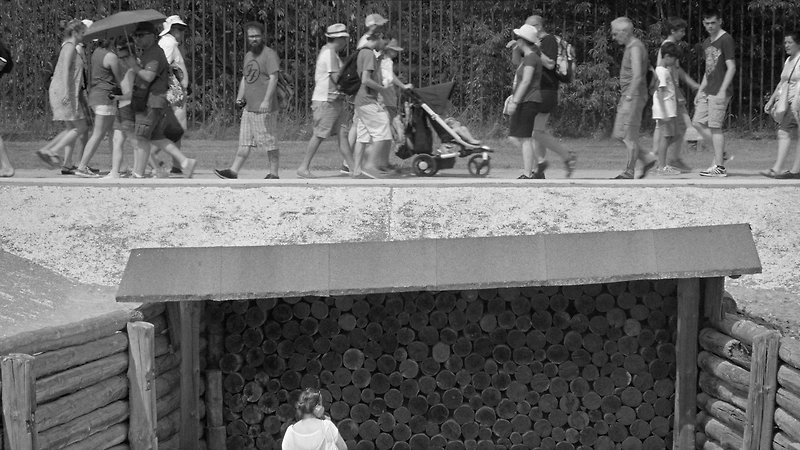How should we remember the Holocaust? As tourists visit Nazi death camps in increasing numbers, Sergei Loznitsa sets up his camera at Sachsenhausen and Dachau and simply observes the behaviour of the visitors.


Austerlitz is about the disconnection between the greatest horror of the 20th century and our inability to adequately convey it to the 21st.
Screened as part of NZIFF 2017
Austerlitz 2016
In Austerlitz, Ukrainian filmmaker Sergei Loznitsa (Maïdan, The Event), surely the world’s foremost documentarian of crowds, watches wave after wave of tourists traipsing through former Nazi extermination camps. Loznitsa filmed principally in Sachsenhausen, 18 miles from Berlin, where more than 30,000 prisoners died during World War II. Decked for a summer day trip in t-shirts and cargo shorts, the tourists throng past the surviving machinery of genocide. We see them looking for somewhere to have lunch, or posing for selfies against the “ARBEIT MACHT FREI” sign on the gate. We hear snatches of the docents’ scrupulously rehearsed commentaries and from time to time see a visitor absorbed in thought.
That’s pretty much it: Loznitsa simply placed his static camera in full view of his camera-toting subjects and filmed. The effect is not simple at all, a storm of perplexing questions about our capacity to process the horrors of which humanity is so dreadfully capable. The title, with its hint of Auschwitz, alludes to the W.G. Sebald novel of the same name, which also concerns the interrogation of historical evidence for living meaning.
“If the filmmaker’s position stands out as disturbingly bold, in a ‘genre’ that hasn’t experimented since Claude Lanzmann’s monumental Shoah (1985), the director approaches the Holocaust through non-fiction as no one has done before. In each scene the architecture remains always in focus, the only framed object maintaining an aura of dignity. We’re nailed to the screen for an hour and a half, watching apparently meaningless images. It is precisely in this contrast – the historic evidence of the place and the impossibility of explaining it – that the deepest meaning may be found.” — Clara Miranda Scherffig, Fandor
Loznitsa’s new feature, A Gentle Creature, also screens at NZIFF.